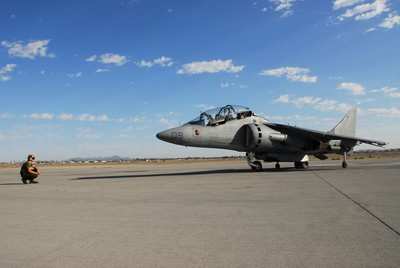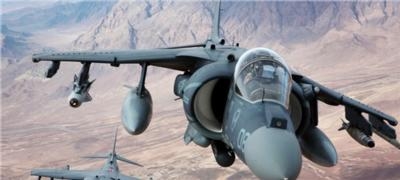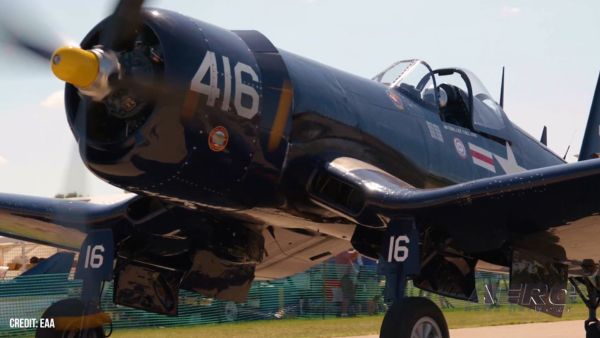Mon, Jun 01, 2015
Upgrades Mission System Computers
General Dynamics Mission Systems' Future Airborne Capability Environment (FACE) team delivered the third software release to the U.S. Naval Air Systems Command (NAVAIR). The software upgrades are loaded into the mission system computer (MSC) in AV-8B Harrier II aircraft used by the U.S. Marine Corps. The software release, using the FACE Technical Standard, provides improved functionality for faster, less expensive integration of MSC applications. General Dynamics received the contract to upgrade AV-8B Harrier's MSCs with the next-generation FACE Infrastructure and capability in 2013.

"This is the first military aircraft computer to have the NAVAIR advanced computing environment," said Carlo Zaffanella, vice president of Maritime and Strategic Systems for General Dynamics Mission Systems. "The goal of this capability will be for technical professionals working on the AV-8B Harrier to swap applications in a way that's similar to changing and upgrading applications on a smartphone."
"Collaborating with our customers to improve the cost-effectiveness, efficiency and agility of their mission systems is a core capability for our organization," said Chris Marzilli, president of General Dynamics Mission Systems. "The work we are doing on the Harrier MSC continues to demonstrate that expertise."
General Dynamics is the sole designer, developer and manufacturer of the mission system computer for the Harrier fleet and the Advanced Mission Computer used on F/A-18E, F/A-18F and EA-18G aircraft. Built on commercial off-the-shelf open architecture, advanced mission computers are designed for high-performance fighter aircraft, providing general-purpose processing, display and graphics processing input/output, video and other mission systems functions.

Following this software release, General Dynamics will begin rigorously testing additional processor and core software in AV-8B Harrier MSCs. The government will then test to ensure that the upgraded mission system computers support flight clearance and fleet introduction.
The FACE Technical Standard and business strategy strengthen the U.S. military's ability to address software obsolescence and enhances software portability and interoperability across the various U.S. Department of Defense airborne platforms. It is designed to reduce lifecycle costs, foster a competitive avionics marketplace and facilitate the adoption of new technologies supported by an open architecture environment.
(Images from file)
More News
“While legendary World War II aircraft such as the Corsair and P-51 Mustang still were widely flown at the start of the Korean War in 1950, a new age of jets rapidly came to >[...]
Decision Altitude (DA) A specified altitude (mean sea level (MSL)) on an instrument approach procedure (ILS, GLS, vertically guided RNAV) at which the pilot must decide whether to >[...]
Aero Linx: National Aviation Safety Foundation (NASF) The National Aviation Safety Foundation is a support group whose objective is to enhance aviation safety through educational p>[...]
Also: Cal Poly Aviation Club, $$un Country, Arkansas Aviation Academy, Teamsters Local 2118 In response to two recent general aviation accidents that made national headlines, more >[...]
“The FAA is tasked with ensuring our skies are safe, and they do a great job at it, but there is something about the system that is holding up the medical process. Obviously,>[...]
 Aero-News: Quote of the Day (04.28.25)
Aero-News: Quote of the Day (04.28.25) ANN's Daily Aero-Term (04.28.25): Decision Altitude (DA)
ANN's Daily Aero-Term (04.28.25): Decision Altitude (DA) ANN's Daily Aero-Linx (04.28.25)
ANN's Daily Aero-Linx (04.28.25) Airborne-Flight Training 04.24.25: GA Refocused, Seminole/Epic, WestJet v TFWP
Airborne-Flight Training 04.24.25: GA Refocused, Seminole/Epic, WestJet v TFWP Aero-News: Quote of the Day (04.29.25)
Aero-News: Quote of the Day (04.29.25)




